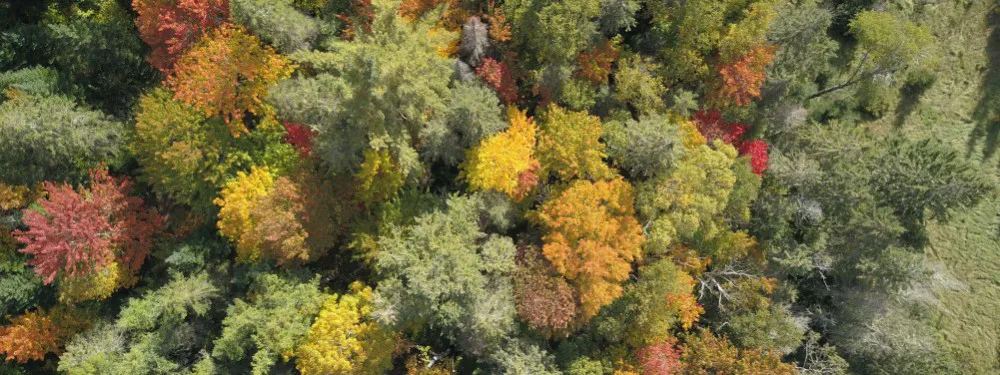Partnering for Climate Action
By Zach Melanson, Posted on June 5, 2019
A Canadian architecture studio’s decision to become carbon neutral has resulted in the preservation of more than 1000 acres of endangered forest in the Maritimes — a legacy set to grow.
In 2011, DIALOG became one of the first companies in Canada to offset carbon using forest renewal and restoration. The architecture firm has recently expanded its commitment by offsetting its 2017-2020 emissions, partnering with Community Forests International (Forests Intl.) to conserve an additional 400 acres of rich, diverse Acadian Forest in New Brunswick.
The partners began working together to explore carbon offsetting in 2010, when Forests Intl. received an unexpected phone call from Craig Applegath, Founding Principal at DIALOG. “What do you know about carbon?” asked Applegath. Our organization was then only three years old, focusing our energy on international reforestation efforts. As the conversations with Craig grew, so did the understanding of the opportunity to mobilize the at-risk Acadian Forest to help in the fight against climate change.
Forests Intl. and DIALOG worked together to determine the studio’s annual greenhouse gas emissions, including those from electricity, server loads, natural gas, flights, paper use and staff commuting. Once emissions were calculated, the studio put in place a range of cost-saving reduction strategies. After reducing emissions as much as possible, DIALOG took responsibility for the remaining carbon emissions produced by its operations and offset those emissions through the Whaelghinbran Forest Carbon Project – one of the first Improved Forest Management projects in Canada.

Stewards of the Whaleghinbran Forest, Clark Phillips and Susan Tyler had been practicing organic agriculture and restoration forestry for 40 years in the Caledonia Foothills near Fundy National Park. Advanced in their years, Clark and Sue could no longer work the land and needed to sell their property to retire, an ever-growing trend in rural communities across Canada. The only options available to them were to sell their land to a forest contractor or timber company who would clear-cut the forest, and their legacy of stewardship along with it – a reality no one wanted to face.
By committing to carbon neutrality, DIALOG opened up a new possibility for Clark and Susan. Since partnering with Forest Intl. DIALOG has kept more than 20,000 tonnes of carbon out of the atmosphere that would have been released if the forests were clear-cut. Stewardship has now passed to Forest Intl. who continues to carefully monitor and manage the forest. Stored carbon and forest health is measured, and ongoing restoration activities are carried out to ensure that old trees at the end of their lives are replaced with young, vigorously growing trees. In this way, Forests Intl. ensures that DIALOG’s stored carbon will be kept on the land and out of the atmosphere for decades to come.
In 2018, Forests Intl. preserved an additional 400 acres of forest to capture and hold DIALOG’s 2017-2020 carbon emissions. This new project is located in the historic Saint John River Valley and is rich in unique tree species known only to grow in that region. By continuing a 5-year track-record of carbon neutrality and by partnering with Forests Intl. to conserve an endangered forest, DIALOG will expand its positive footprint to a new region with new ecological and social impact. DIALOG has shown how real climate action can have a meaningful, measurable impact on our forests and the people that care for them.
Please click here to learn more about Community Forests International’s approach to carbon offsets.
